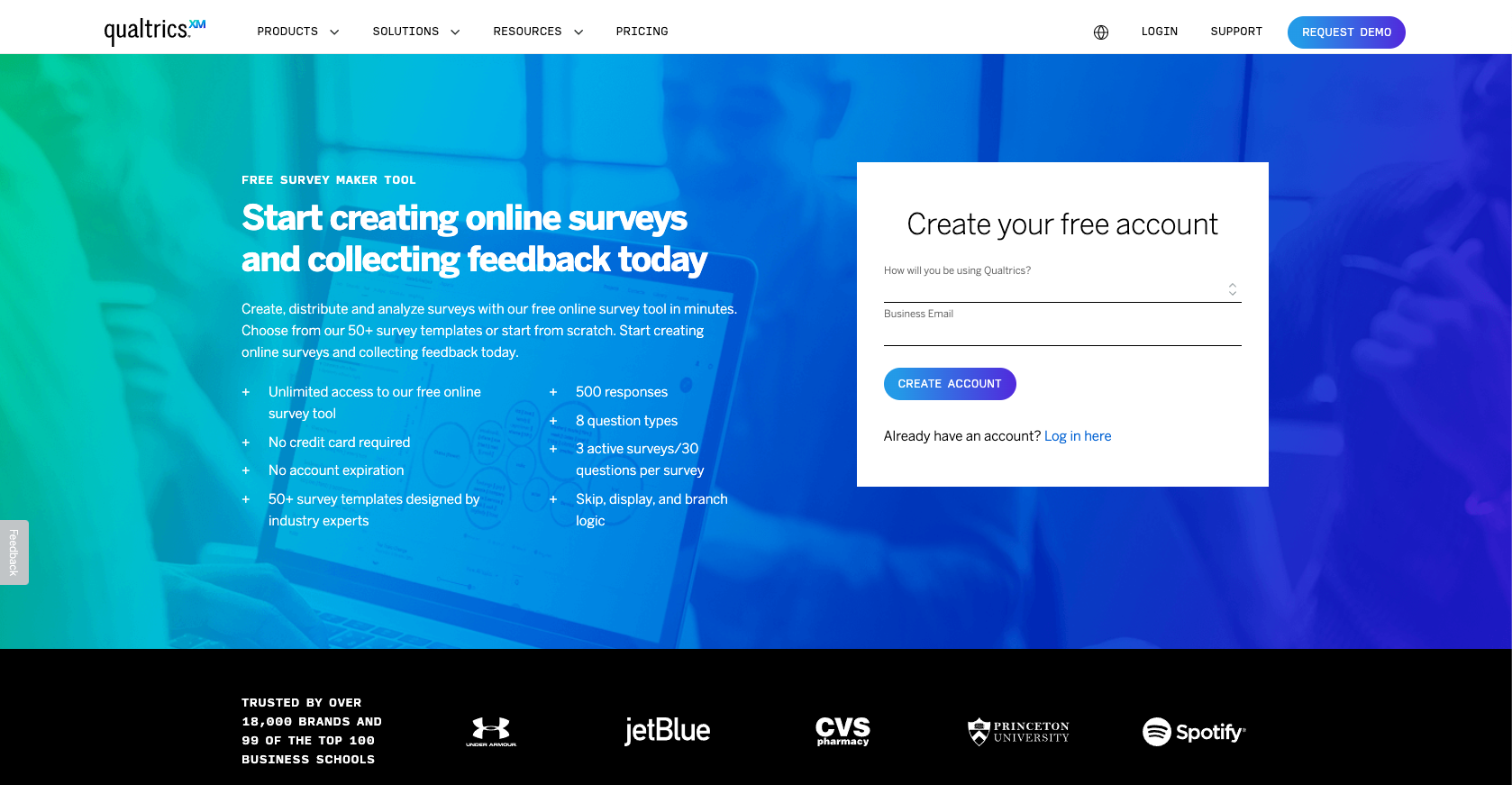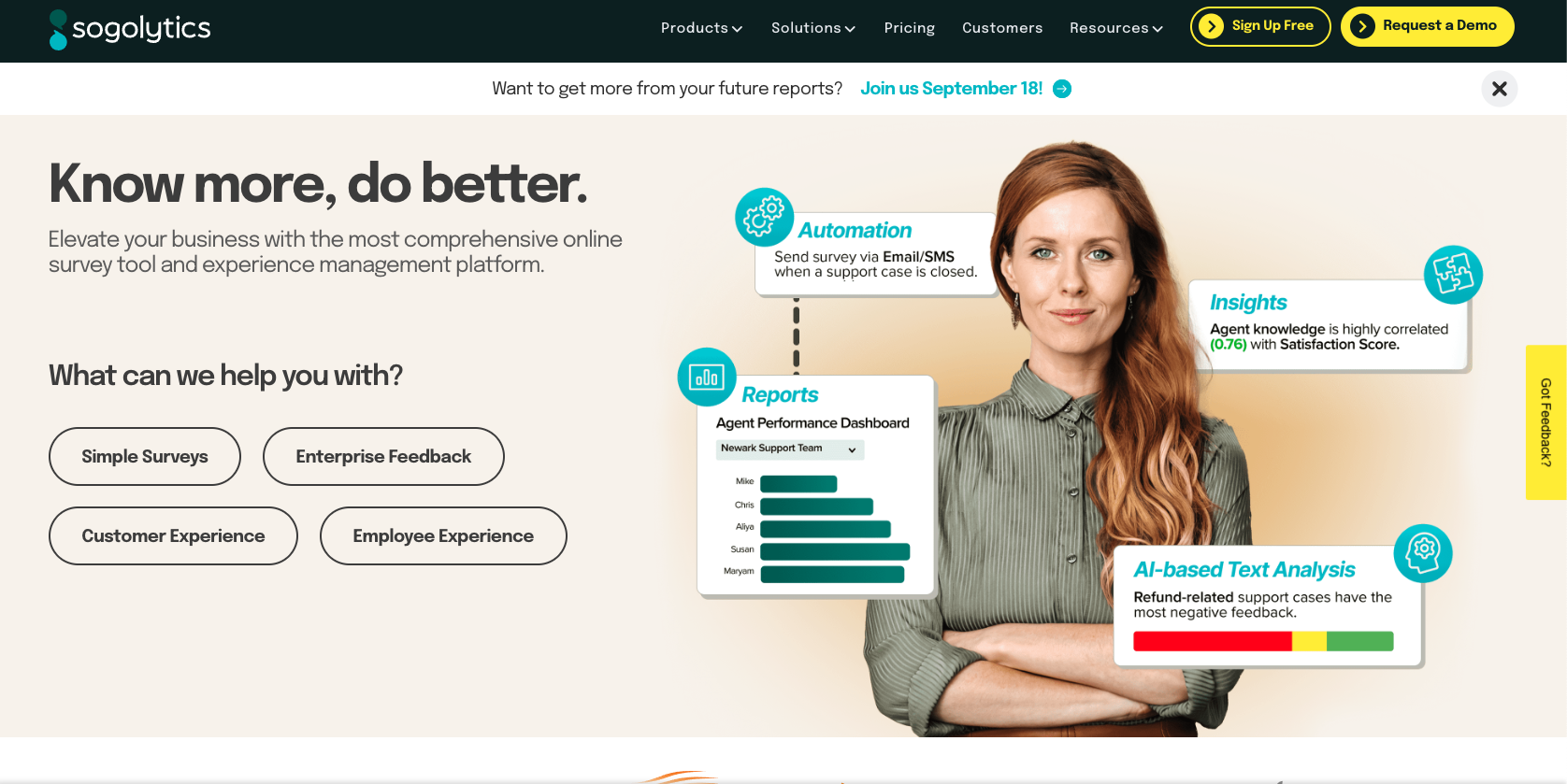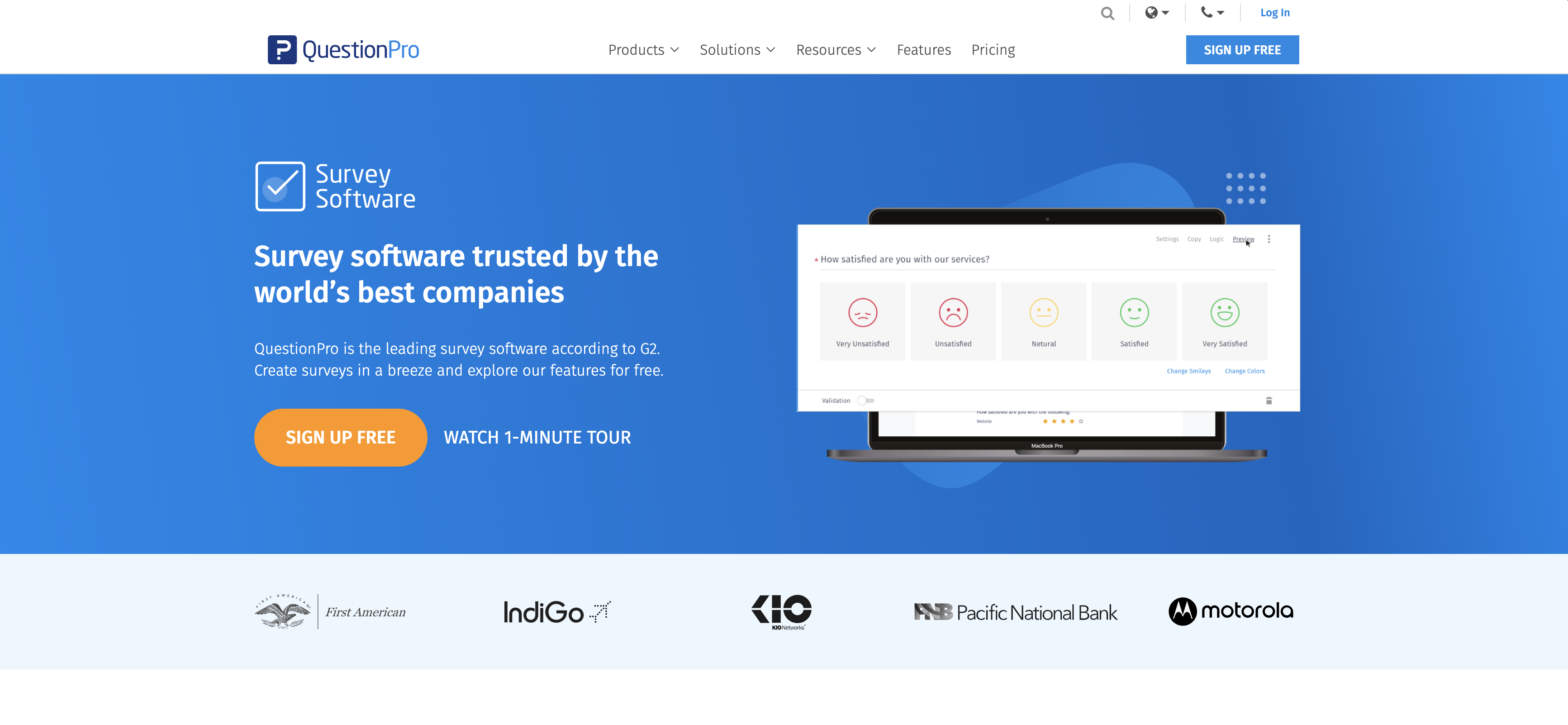Top Alchemer alternatives
Alchemer, formerly known as SurveyGizmo, is an enterprise-grade survey tool that helps organizations gather data from their customers.
Alchemer’s Survey product is focused on combining advanced features with ease of use. It has 43 question types, conditional logic options, multiple report types, and software integrations. Alchemer doesn’t charge based on survey responses (although the total number of responses is capped on its small team plans), and it lets users create an unlimited number of surveys with unlimited questions on all paid plans.
“Quite frankly, I think Alchemer is one of the best survey tools on the market,” says Hugh Lagrotteria, cofounder of Outdone, an AI-powered gift recommendation platform. “I have tried a number of other tools over the years and have always been very impressed by Alchemer’s ease of use, pricing model, customer service, and product quality.”
However, while Alchemer can help many organizations collect important data from their customers, it may not have the right features, plans, or pricing for your organization. Advanced logic and reporting options aren’t available on the most affordable paid plan. Certain question types are only available on more expensive plans. And anonymous surveys aren’t available on the free plan or the most affordable paid plan.
In this article, you’ll find top Alchemer alternatives that may be a better fit for your organization when it comes to collecting data and feedback from customers.
5 notable Alchemer alternatives
1. Jotform
Jotform is a powerful survey-building platform that presents an excellent Alchemer alternative. It has similar features — including a multitude of question types, conditional logic options, and reporting — and also offers many others.
Organizations of all sizes can use Jotform to create surveys of any type using a simple drag-and-drop interface. You can choose from over 2,000 customizable survey templates or easily build a new survey from scratch. Choose from an array of question types; modify the design, color, and layout; integrate payment processors; add useful widgets; and more.
With over 240 software integrations, Jotform can easily connect to your organization’s existing tech stack, including integrations with Salesforce, Microsoft Teams, Slack, HubSpot, and Google Calendar.
Jotform’s Report Builder lets organizations automatically generate customizable visual reports based on survey responses, letting you capture survey trends at a glance. You can also manage survey responses in an automatically generated database with Jotform Tables.
Jotform has a free plan; three paid, single-user plans that start at $34; and an Enterprise plan for larger teams.
2. Qualtrics
Qualtrics offers a range of products to help businesses optimize experiences and strategies, including surveying tools. Its surveys can suit specific use cases, such as customer surveying, employee surveying, and product research.
It offers 23 question types, conditional logic, software integrations, and reporting features. Qualtrics also offers predictive analytics to help you make sense of the data and turn information into insights. A wide range of industries use Qualtrics, from healthcare to travel to government.
“It is a well-known, widely used survey platform that offers a wide variety of features,” says Gregory Lorenzo, CFO of IBR, an investment planning resource. “It is also very user friendly, making it a good option for those who are not familiar with survey platforms.”
The solution has separate pricing for each of its products.
3.Sogolytics
Sogolytics is an easy-to-use survey tool for enterprises, with an array of survey templates including customer experience, employee engagement, and help desk ticketing. It offers software integrations, conditional logic, reporting tools, and AI-backed analytics to help organizations better understand survey responses.
Sogolytics also supports multiple languages, a major plus for organizations with employees and customers across the globe.
Sogolytics has a free plan as well as paid plans that start at $25 per month or $299 per year. Its other product offerings have different custom pricing.
4. SurveyMonkey
SuveyMonkey claims that over 20 million questions are answered each day on its platform. It’s a major online surveying solution that comes with hundreds of customizable templates as well as different open- and closed-ended question formats. SurveyMonkey also offers tools to analyze survey responses with ease, software integrations, and AI-generated surveys based on text prompts.
“Where Alchemer may fall short for some people is in its few options for a hands-off approach,” says Lagrotteria. “Alchemer is a very hands-on tool, which is why I love it. But other enterprise folks may prefer a more hands-off, all-inclusive solution like SurveyMonkey.”
SurveyMonkey has a basic free plan as well as paid plans that start at $99 per month for a single user or an annual cost based on the number of users, beginning at $468 for a single user.
5. QuestionPro
QuestionPro enables organizations to create questionnaires for everything from basic information-gathering exercises to complex research projects. QuestionPro’s features include multilingual surveys, multiple question types, conditional logic, software integrations, over 20 design themes, and more.
Organizations can also customize QuestionPro with their own branding. QuestionPro offers several products. Its Survey Software product has a free plan and paid plans that start at $1,188 per year.
Which survey tool to choose
Which Alchemer alternative you should choose depends on your specific use case. Identify your goals and needs for your survey software.
Do you need your survey tool to integrate with specific platforms you already use? Are there specific question types you absolutely need to be available? What design and visual options are you hoping to have? Questions like these can help you make a list of priorities.
By identifying your survey needs and comparing those needs to different survey platforms’ features, you can find the tool that’s right for you.
Photo by Vitaly Gariev










































































































Send Comment: